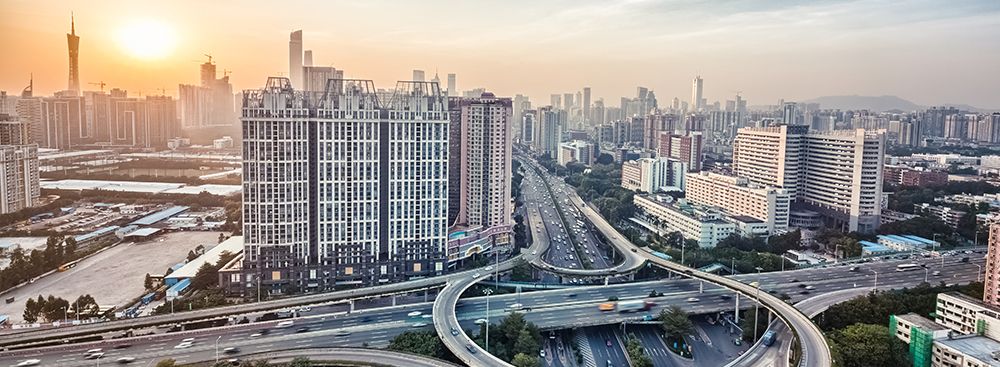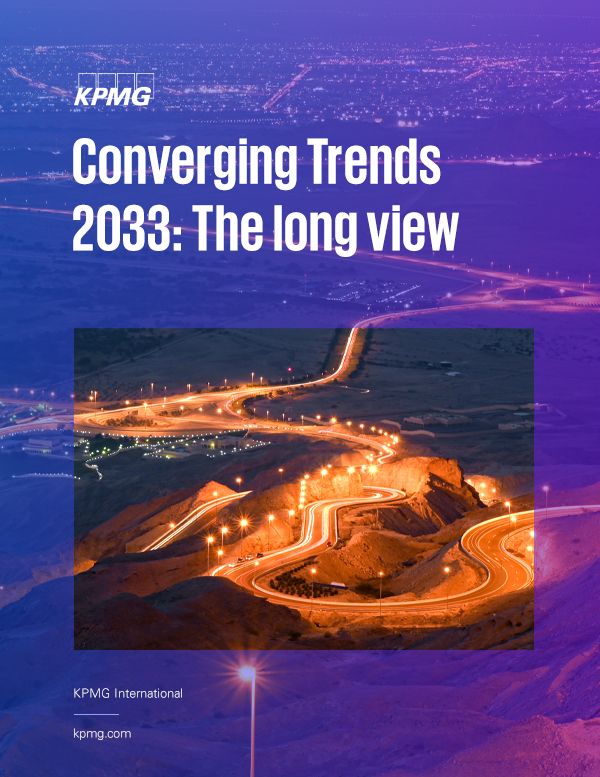We asked KPMG’s global infrastructure leaders to use their experience and insight to project themselves to the year 2033. We invited them to tell us what they saw and to provide insights and ideas to help readers in the mid-2020s prepare for the world of 2033.
There is no doubt, infrastructure will play a key role in determining the outcomes we achieve as communities, countries and globally. In this report, we argue that it is time for sector leaders to start thinking differently about the future and their role in delivering it.
To ensure this report is practical there is a focus on three key yet interdependent themes – cities, sustainable development and innovation. See below for some highlights of what our leaders discussed, or download the full report for a deep dive into some scenario building and visualisations for the future.
Report highlights

The late 2020s will likely be seen by future generations as the era of urban revolution. Industrial-age norms will start to fall away. Hives of vibrant, sustainable activity will grow out of the existing concrete. We will start to recognise that we are a part of – not apart from – nature. And new ideas will emerge, thrive and peacefully coexist.
The risk is that this will lead to a bifurcation between the cities that are rapidly transforming and those that are not.

In 2033, we will be in the process of pulling ourselves back from the cliff edge. There won’t have been any ‘silver bullets.’ It will have been an evolution, not a revolution – a triumph of progress over perfection. And while certain targets will have been missed, the world has begun to adapt and embrace a more regenerative, sustainable, and equitable future.
Yet there will also be many different evolutionary paths to sustainability.

In many ways, the world in 2033 looks a lot like it does today. People still work, they still drive on roads, and they still need electricity. What has changed is the focus. Whereas in the past, infrastructure innovation was often poorly funded, weakly adopted and scattered in its use cases, by 2033, innovation in the infrastructure sector is tightly aligned to a small number of very important priorities.
Perhaps the most important change is in governments’ ability to accelerate innovation and adoption of new models.
Get in touch
When engineering and construction leaders turn to KPMG, they do so because KPMG professionals understand the industry at a local, national, and global level. For decades, we have provided services tailored specifically to meet the needs of the industry.
KPMG Ireland’s built environment divisions work with a wide range of clients in both the public and private sectors on various projects of differing size, scope, and complexity. We incorporate the latest global thinking into our uniquely tailored services for the Irish industry, supporting and providing our clients with unrivalled experience, insight, and commitment to address the challenges at any stage of the asset life cycle.
For experienced guidance on public and private sector projects, get in touch with our team below today. We look forward to hearing from you.
Contact our team
Michele Connolly
Partner, Head of Corporate Finance, Head of Infrastructure
KPMG in Ireland
Paul O'Neill
Managing Director, Infrastructure and Government
KPMG in Ireland
Shane O'Reilly
Managing Director, KPMG Sustainable Futures
KPMG in Ireland


